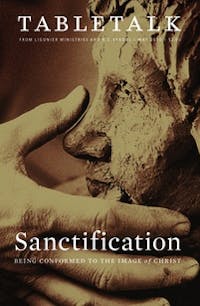
Request your free, three-month trial to Tabletalk magazine. You’ll receive the print issue monthly and gain immediate digital access to decades of archives. This trial is risk-free. No credit card required.
Try Tabletalk NowAlready receive Tabletalk magazine every month?
Verify your email address to gain unlimited access.
“When Christ calls a man, He bids him come and die.” Dietrich Bonhoeffer was about thirty years old when he penned these words in his classic work The Cost of Discipleship. Eight years later he was executed for his crimes against the Third Reich. The prison doctor who witnessed Bonhoeffer’s execution wrote, “In the almost fifty years that I worked as a doctor, I have hardly ever seen a man die so entirely submissive to the will of God.” The doctor’s words could not have been more appropriate to describe not only the manner in which Bonhoeffer submitted himself to God in death but also the manner in which he submitted himself to God in life. In his life and at his death, Bonhoeffer grasped one crucial truth: To be set apart to God is to be set apart to die, to die to sin, to self, and to life itself — to take up our crosses daily and to live unto Christ and embrace the true freedom that only comes when Christ calls a man to die and live abundantly in Him.
Sanctification is a most simple biblical doctrine, yet it is perhaps the most difficult doctrine to understand. In one sense, sanctification is as simple as understanding the biblical language of being set apart, consecrated, or holy. And in another sense, it is as comprehensive as the application of sacred Scripture to all of life and worship. The Westminster Assembly provided us with one of the more helpful and succinct explanations of sanctification (WSC 35), still questions remain as to the precise nature of God’s work and our work in the Spirit-wrought work of sanctification. By grace alone through faith alone because of Christ alone we are positionally sanctified, yet in some mysterious way, God has chosen to sovereignly work in us, through us, and with us to sanctify us progressively by His free grace through repentance, faith, and obedience that we might die more and more unto sin and live unto righteousness.
However, even though a certain degree of mystery may exist with respect to how we are sanctified in holiness, without which no one will see the Lord, we do know this: Our sanctification is established on Him who knew no sin but became sin for us and died for us that we might die in Him and live for Him in order that we might reign with Him without the power or presence of sin within us. It is only then that our countenances will reveal our genuine and uninterrupted contentment in the One who has bid us to come and die and live in Him.
